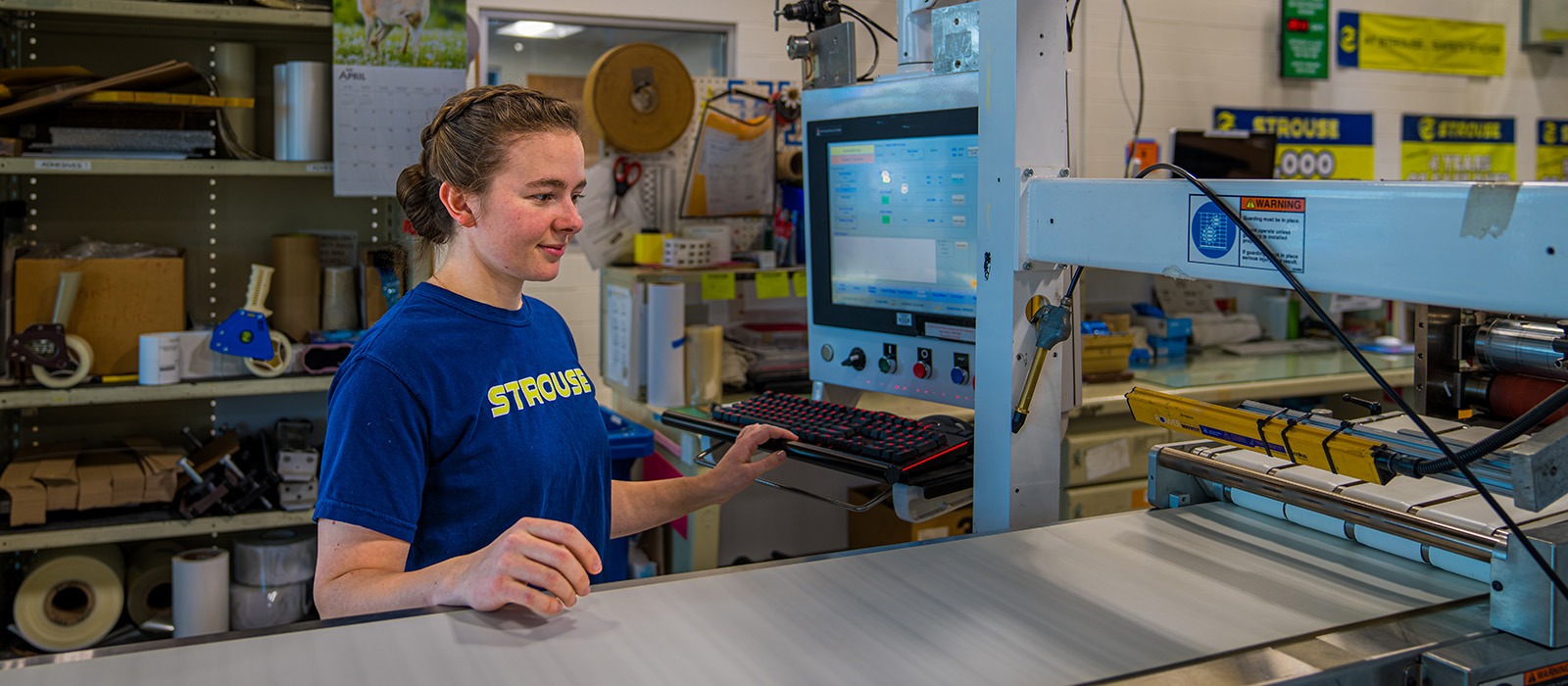Building Skills for Industry 4.0

Industry 4.0 is here. Unfortunately, today’s workforce is not prepared for the Fourth Industrial Revolution. For a decade, skilled manufacturing companies have struggled to fill openings requiring Industry 4.0 skills. Kelly Koermer, Vice President of Continuing Education and Training at Carroll, has observed this trend.
“We are seeing a lot of graying out of the manufacturing workforce with a large number of retirements and forecasted retirements,” she said. “It’s significantly impacting employers.”
From Dirty to Data-Driven
In Industry 4.0, the manufacturing jobs are far different from the dirty, knuckle-skinning tasks of a generation ago. In today’s high-tech environments, technicians operate computer-controlled machinery with precision to ensure the product turns out right and on schedule.
In the wake of the Fourth Industrial Revolution, “data is the new oil,” Koermer said. “For manufacturers to run efficiently, they’re collecting all types of data to see how fast something is running through the line, its temperature, or the humidity.”
These factors and many more add up to making quality goods and meeting production deadlines. The technology extends further than ever to reduce mundane tasks. For instance, using AI can help ensure perfect products every time.
Identifying In-Demand Skills
To help Industry 4.0 manufacturers achieve their employment needs, Maryland’s Transforming Manufacturing in the Digital Age Work Group has been determining the type of education and skills workers require to fill these in-demand jobs. In order to meet the requirements that the Work Group identified, Koermer has helped Carroll launch several non-credit programs, including training on CNC machines, robotics, mechatronics, programmable logic controllers and 3D printing.
Our Industry 4.0 programs will emphasize troubleshooting. They are set up for hands-on classroom activities with actual equipment used in manufacturing, and we’ll also have some online modules to reinforce what they’re learning in the classroom and lab.
Carroll’s Digital Fabrication credit program, for example, includes working in its “Fab Lab” with state-of-the-art equipment including CAD and 3D printing with multiple feedstocks and printers.
Koermer said Carroll’s new Continuing Education Manufacturing program will quickly equip students with the skills to test for the Certified Manufacturing Associate credential, an industry-recognized certification that can help applicants fill positions in the Fourth Industrial Revolution.
“It will also give them a launching point to go into more specific areas like welding, machining, general production and industrial maintenance,” Koermer added.
Enrollment in these manufacturing programs begins in Fall 2022.
“We are making sure that we have our curriculum aligned with the industry needs and that our manufacturing labs are like the workspaces students will encounter on the job,” Koermer said. “More and more employers are saying, ‘Get folks the skills we need.’ It’s important to our prospective students that they can get into the workforce right away.”